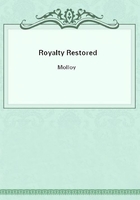
第29章 CHAPTER V.(3)
Another figure prominent in this gay and goodly assembly was George Villiers, second Duke of Buckingham. The faultless beauty of his face, and graceful symmetry of his figure, would have rendered him distinguished in a court less sensuously impressionable to physical perfection, even if his talents had not dazzled, and his wit amused. On the death of the first Duke of Buckingham, "styled the handsomest bodied man in England," the late king of pious memory undertook the charge of the young duke, and had him educated with his own sons. Subsequently he was sent to Cambridge, and then travelled into France, the better to acquire that polish of manner and grace of bearing for which he became distinguished. But, whilst abroad, word was brought him of the distress of his master, the king; on which the young duke hastened back into England, became a cavalier, and fought his majesty's battles with great gallantry. Soon after Charles I.
had been beheaded, his faithful servitor went abroad; but being loyal to the Stuart cause, he journeyed with Charles II. to Scotland, and afterwards fought beside him in the bloody battle of Worcester. Whilst the monarch was hiding in Boscobel Wood, the duke betook himself to London, where, donning a wizard's mask, a jack-pudding coat, a hat adorned with a fox's tail and cock's feathers, he masqueraded as a mountebank, and discoursed diverting nonsense from a stage erected at Charing Cross. After running several risks, he escaped to France. But alas for the duke, who was born as Madame Dunois avows, doubtless from experience--"for gallantry and magnificence," he was now penniless, his great estates being confiscated by Cromwell.
However, conceiving a scheme that might secure him part of his fortune, he hastened to put it into execution.
It happened that my Lord Fairfax, one of Cromwell's great generals, had allotted to him by the Protector a portion of the Buckingham estates that returned five thousand pounds a year.
The general was, moreover, placed in possession of York House, which had likewise belonged to his grace.
Now it happened Lord Fairfax, a generous-tempered man and brave soldier, had an only child, a daughter destined to become his heiress; aware of which the duke resolved to marry her, that he might in this manner recover portion of his estate. The fact of the lady never having seen him did not interfere with his plans;that she would reject his suit seemed an impossibility; that she would succumb to the fascination he invariably exercised over woman was a certainty. Nor did it matter that Mistress Fairfax was no beauty; for the duke, being grateful for past favours liberally bestowed by the opposite sex, had no intention of becoming under any circumstances churlish enough to limit his devotion to one lady, though she were his wife.
Carefully disguising himself, he journeyed to London, where he was met by a faithful friend, who promised he would aid him in winning Mistress Fairfax, towards which end he promptly introduced the duke to that estimable gentlewoman. Having once obtained speech of her, the remainder of his scheme was comparatively easy of accomplishment. She loved the gay and graceful gallant at first sight, and through years of bitter wrong and cruel neglect continued his faithful and devoted slave.
Though she had become clandestinely acquainted with him, she was too good a daughter to wed without her father's consent. But this she had not much difficulty in obtaining. Though Lord Fairfax had fought against his king, he was not sufficiently republican to scorn alliance with nobility, nor so thoroughly puritan as to disdain connection with the ungodly. Accordingly he gave his sanction to the union, which was celebrated at his mansion at Nun Appleton, within six miles of York. Now, my Lord Fairfax had not consulted Cromwell's goodwill concerning this alliance, the news of which reaching the Protector in due time, made him exceedingly wroth. For he had daughters to marry, and, that he might strengthen his power, was desirous of wedding them to scions of nobility; Buckingham being one of those whom he had mentally selected to become a member of his family. His anger was therefore at once directed against Fairfax and his grace.
The former he could not molest, but the latter he committed to the Tower; and if the great Protector had not been soon after seized by fatal illness, the duke would have made his last journey from thence to Tower Hill. As it fell out he remained a prisoner until within a year of the coming of Charles, whom he welcomed with exceeding joy. Being bred with the merry monarch, he had from boyhood been a favourite of his majesty, with whom he shared a common love for diversion. He was, therefore, from the first a prominent figure at Whitehall; his handsome person and extravagant dress adorned the court; his brilliant wit and poignant satire amused the royal circle.